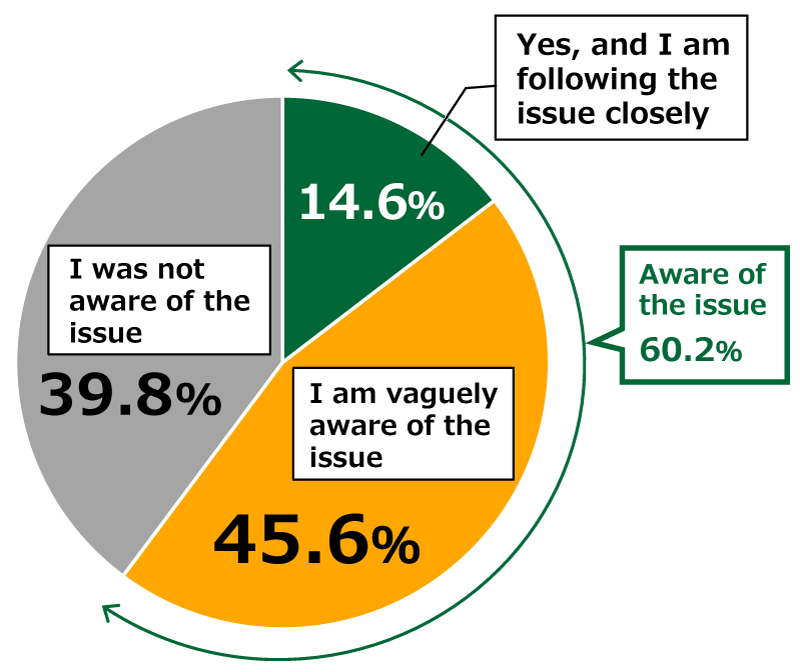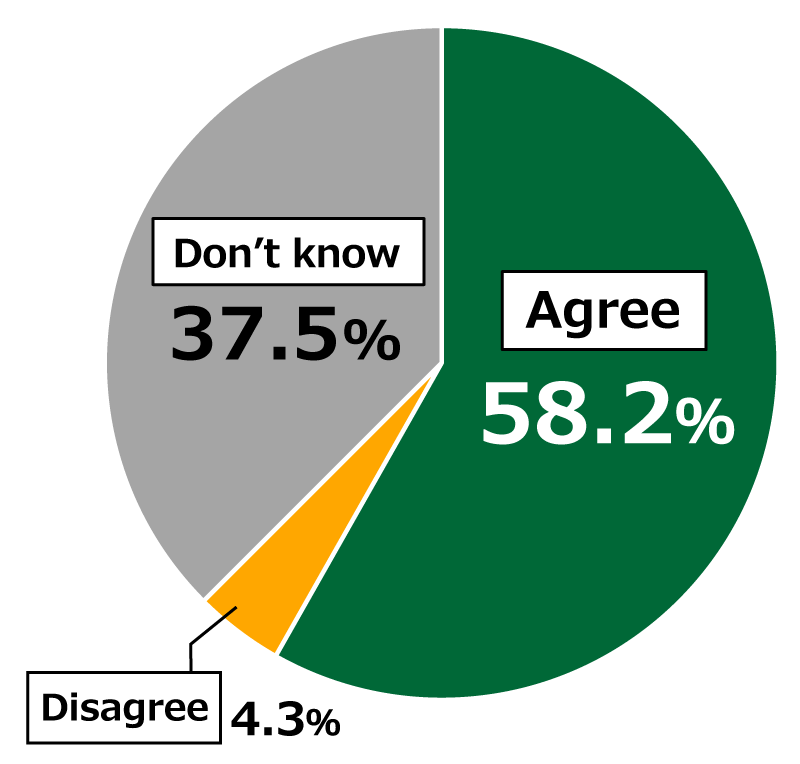Awareness Survey of 18-Year-Olds – Juvenile Law RevisionsResults of 36th installment announced
The 36th installment of the Awareness Survey of 18-Year-Olds, launched by The Nippon Foundation in October 2018, was carried out from March 19 to 22 on the subject of “Juvenile Law Revisions.”
The Cabinet has approved a bill that creates a separate designation for 18- and 19-year-olds, who were previously treated the same as younger juveniles in criminal matters. While continuing to be covered under the jurisdiction of the Juvenile Act and related legislation, the proposed revisions expand the scope of crimes for which these “designated juveniles” can be tried as adults in criminal courts, and allow the media to disclose their names once they are indicted of these crimes. Currently, 18- and 19-year-olds can only be tried as adults for crimes committed with intent, and that lead to a victim’s death. The proposed revisions would add to this crimes that are punishable by imprisonment of at least one year, including robbery, rape, and arson.
These proposed changes follow laws passed in 2015 that lowered Japan’s voting age to 18 from 20, and revisions to the Civil Code made in 2018 to lower the age of adulthood to 18 for things like marriage without parental consent and taking out loans and credit cards (the legal age for smoking, drinking alcohol, and legal gambling is set to remain at 20). Both the Civil Code revisions and the proposed juvenile law revisions would take effect from April 2022. The Nippon Foundation launched the Awareness Survey of 18-Year-Olds in October 2018, with the Civil Code revisions lowering the age of adulthood as the subject of the first installment.
The 36th installment found that 60% of respondents were either very familiar or vaguely aware of the juvenile law revisions, and 58% agreed with the expanded scope of crimes for which 18- and 19-year-olds can be tried as adults, while only 4% disagreed. In addition, more than 40% approved of news media being able to disclose the actual names and other information that would lead to the identity of 18- and 19-year-olds indicted for these crimes.
Notes:
- From the 13th survey, the number of respondents, comprising men and women aged 17 to 19, has been increased to 1,000 from 800. (With the exception of the 20th installment, “Awareness Survey of Society and Country,” all surveys cover respondents in Japan only.)
- In the information below, differences between total amounts and simple sums are due to rounding.
Survey 36. Juvenile Law Revisions (Results announced on April 26, 2021)
Finding: 60.2% of respondents knew about the proposed juvenile law revisions. (n = 1,000)
Bills are being submitted to the Diet to revise the Juvenile Act and related legislation with effect from next year.
“Do you know about these moves?”
- Yes, and I am following the issue closely – 14.6%
- I am vaguely aware of the issue – 45.6%
- I was not aware of the issue – 39.8%

Finding: 58.2% of respondents agreed with the expanded scope of crimes for which 18- and 19-year-olds can be tried as adults. (n = 1,000)
The proposed juvenile law revisions will expand the scope of crimes for which 18- and 19-year-olds can be tried as adults to include robbery, rape, and arson.
“Do you agree with expanding the scope of crimes for which 18- and 19-year-olds can be tried as adults?”
- Agree – 58.2%
- Disagree – 4.3%
- Don’t know – 37.5%

Other Findings
- Respondents were roughly evenly divided between those who were comfortable with the term “designated juveniles” and those who were not.
- On the issue of news media being able to disclose the actual names and other information that would lead to the identity of 18- and 19-year-olds indicted for these crimes, more than 40% approved of the change and close to 20% disapproved.
- A significant percentage of respondents questioned the process by which the proposed juvenile law revisions were compiled, with more than 30% finding it unusual that the age of adulthood would be different under the Civil Code and the Juvenile Act.
Related Links
Contact
Public Relations Team
The Nippon Foundation
- Email: cc@ps.nippon-foundation.or.jp



